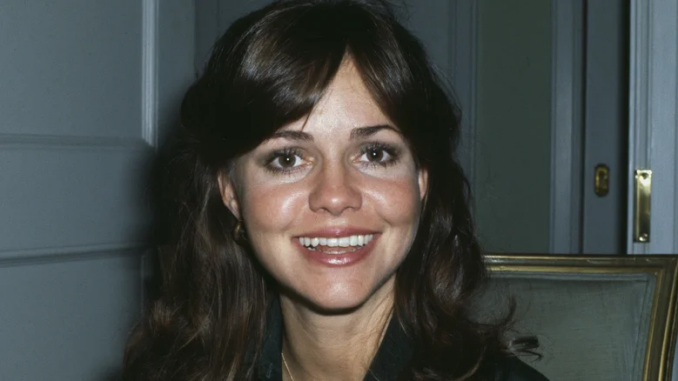
The Stunning Transformation Of Sally Field
Few stars in Hollywood can say they’ve had a career for as long as Sally Field. The star of iconic films like “Mrs. Doubtfire” and “Soapdish” has done a bit of everything, racking up awards for her work in both television shows and movies. Her career has been one of constant transformation, which Field told NPR she sees as a natural part of the human experience. “Our task in life is to constantly transition from one stage into another, whether it’s toddlerhood into childhood into adolescence, and then young adulthood and then middle age. It’s just constant movement,” Field reflected.
“Constant movement” is the perfect way to describe her career. Field burst onto the scene as a fresh-faced teenager, experienced relationships in the spotlight, found her way behind the camera, and cemented her status as a Hollywood legend, all thanks to her need to find new ways to challenge herself and her art. “As I head into this big part of my life, you say, ‘How do I embrace my 70s?’” she told NPR. “What is there of me that I haven’t experienced yet?”

As Sally Field continues to find new aspects of life to experience, we’re exploring her illustrious career and stunning transformation.
Sally Field had a troubled childhood
Birmingham High School
Sally Field was born in California in 1946, and for the first few years of her life, she struggled with intense anxiety. In her 2018 memoir “In Pieces,” Field recalled spending many days at the school nurse’s office, waiting for her mother to come pick her up. “Nothing and no one could distract or engage me enough to lessen the dread I felt,” Field wrote, unsure whether she was afraid of school or afraid all the time. After all, her home life was troubled, too.
In her book, Field revealed that she was abused by her stepfather throughout her teenage years, just one of the tragic details about Sally Field’s life. Jacques “Jocko” O’Mahoney was a stuntman who worked with stars like Errol Flynn, but at home, he molested his stepdaughter. “It would have been so much easier if I’d only felt one thing, if Jocko had been nothing but cruel and frightening,” Field wrote. “But he wasn’t. He could be magical.” The actor wouldn’t tell her mother about the abuse until many decades later.
If you or someone you know may be the victim of child abuse, please contact the Childhelp National Child Abuse Hotline at 1-800-4-A-Child (1-800-422-4453) or contact their live chat services.

She went from Gidget to The Flying Nun
Bettmann/Getty Images
In 1965, Sally Field won the role that launched her into stardom. For 32 episodes between 1965 and ’66, she played the titular character on “Gidget,” the television adaptation of the iconic movie series. However, Field doesn’t look at the series as her big “break.” Instead, she felt it was only a continuation of the work she was doing in her high school drama department. “You call that a turn in the road,” she told Yahoo! “That’s a fork in the road that changes your existence. That’s not a break.”
The series was canceled after only one season, but Field quickly landed yet another iconic part that would keep her working for several more years. In “The Flying Nun,” Field played Sister Bertrille, a nun whose winged habit gives her the ability to soar in the wind. However, Field didn’t love that role, either. “It was during the sixties when my whole generation was running around naked and eating granola and God knows what,” she recalled, wanting to be out there going to college and protesting the war in Vietnam with other people her age. Instead, she viewed her time on “The Flying Nun” as an education. “I learned survival techniques,” she said. “I learned little exercises to keep myself from tearing my hair out because it was so boring.”

Unfortunately, because her first two major roles were projects as silly as “Gidget” and “The Flying Nun,” Sally Field found it difficult to convince Hollywood to take her talent seriously. When the opportunity arose to start in a miniseries called “Sybil,” in which she would play a woman with multiple personality disorder, Field struggled to even get an audition. “I was a joke,” she later recalled to Bustle. Instead, she began studying her craft, and her time at The Actors Studio paid off. “I knew I had to be so good that they couldn’t turn away,” she said.
Field told O, The Oprah Magazine that she went to her eventual audition in character, and the gamble paid off. She got the part, and she was, indeed, so good in “Sybil” that Hollywood took notice. She won an Emmy for her performance, and the miniseries wound up transforming her career trajectory as a result. “The challenge for me was that people saw ‘Sybil’ and said, ‘Boy, she can act — but m
